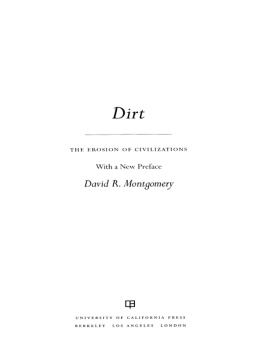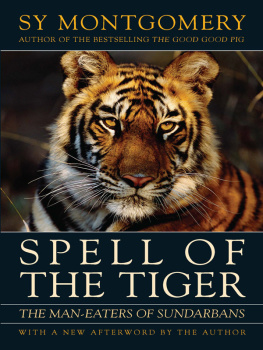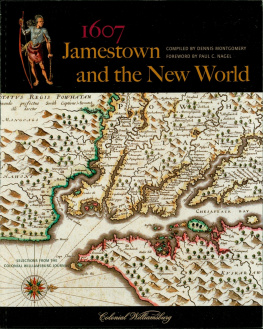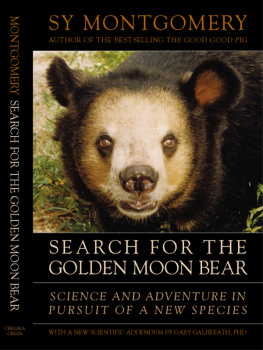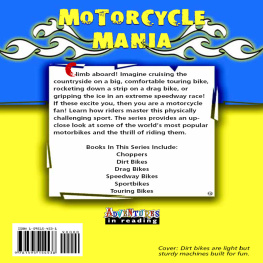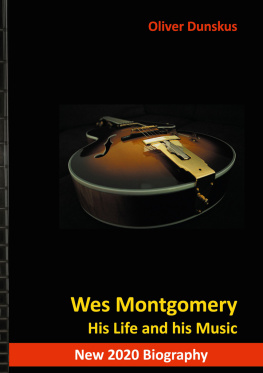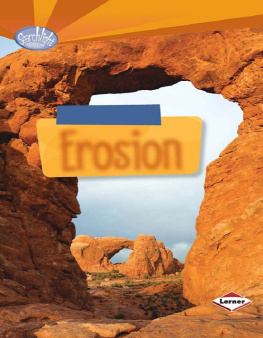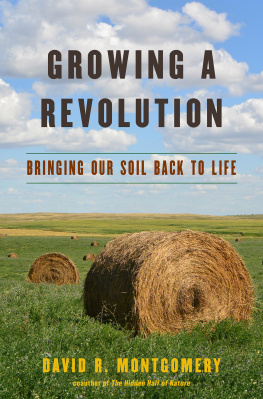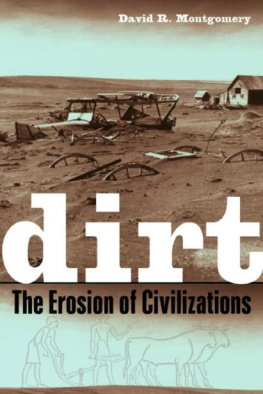Montgomery - Dirt the erosion of civilizations
Here you can read online Montgomery - Dirt the erosion of civilizations full text of the book (entire story) in english for free. Download pdf and epub, get meaning, cover and reviews about this ebook. City: London;Berkeley;Calif, year: 2012, publisher: University of California Press, genre: Romance novel. Description of the work, (preface) as well as reviews are available. Best literature library LitArk.com created for fans of good reading and offers a wide selection of genres:
Romance novel
Science fiction
Adventure
Detective
Science
History
Home and family
Prose
Art
Politics
Computer
Non-fiction
Religion
Business
Children
Humor
Choose a favorite category and find really read worthwhile books. Enjoy immersion in the world of imagination, feel the emotions of the characters or learn something new for yourself, make an fascinating discovery.
- Book:Dirt the erosion of civilizations
- Author:
- Publisher:University of California Press
- Genre:
- Year:2012
- City:London;Berkeley;Calif
- Rating:5 / 5
- Favourites:Add to favourites
- Your mark:
- 100
- 1
- 2
- 3
- 4
- 5
Dirt the erosion of civilizations: summary, description and annotation
We offer to read an annotation, description, summary or preface (depends on what the author of the book "Dirt the erosion of civilizations" wrote himself). If you haven't found the necessary information about the book — write in the comments, we will try to find it.
Dirt the erosion of civilizations — read online for free the complete book (whole text) full work
Below is the text of the book, divided by pages. System saving the place of the last page read, allows you to conveniently read the book "Dirt the erosion of civilizations" online for free, without having to search again every time where you left off. Put a bookmark, and you can go to the page where you finished reading at any time.
Font size:
Interval:
Bookmark:

The publisher gratefully acknowledges the generous contribution to this book provided by the General Endowment Fund of the University of California Press Foundation.
Dirt

THE EROSION OF CIVILIZATIONS
With a New Preface
David R. Montgomery

UNIVERSITY OF CALIFORNIA PRESS
BERKELEY LOS ANGELES LONDON
Also by David R. Montgomery
King of Fish: The Thousand-Year Run of Salmon
University of California Press, one of the most distinguished university presses in the United States, enriches lives around the world by advancing scholarship in the humanities, social sciences, and natural sciences. Its activities are supported by the UC Press Foundation and by philanthropic contributions from individuals and institutions. For more information, visit www.ucpress.edu.
University of California Press
Berkeley and Los Angeles, California
University of California Press, Ltd.
London, England
First paperback printing 2008
2007, 2008, 2012 by The Regents of the University of California
Library of Congress Cataloging-in-Publication Data
Montgomery, David R., 1961-.
Dirt : the erosion of civilizaton / David R. Montgomery
p. cm.
Includes bibliographical references and index.
ISBN 13: 978-0-520-27290-3 (pbk : alk. paper)
1. Soil scienceHistory. 2. Soils. 3. Soil erosion. I. Title.
S590.7.M66 2007
631.4'9dc22 2006026602
Manufactured in the United States of America
19 18 17 16 15 14 13 12
10 9 8 7 6 5 4 3 2 1
The paper used in this publication meets the minimum
requirements of ANSI/NISO Z39.48-1992 (R 2002)
(Permanence of Paper).
For Xena T. Dog, enthusiastic field assistant, dedicated receptionist, and very best friendwalk with me forever, sweet girl
PREFACE
The twin problems of soil degradation and erosion have plagued humanity since the dawn of agriculture. Although these problems are mostly of our own making and well within our power to solve, citizens, the media, and politicians don't seem to take them as seriously as volatile financial markets, climate change, or any number of other societal challenges. And yet, how we treat land, how we treat the soil, is fundamental to the health and survival of modern civilization. I wrote this book because over the course of several decades, I came to see soil as a resource every bit as important as things we would all recognize as essential. But who, really, thinks of soilof dirtas a vital resource?
In college I was trained as a geologist, advised to ignore or dismiss soil as overburden unworthy of serious attention. In graduate school I specialized in geomorphology, the study of processes shaping and influencing topography, focusing on the factors that control where stream channels begin. In studying the interplay of runoff and erosion on forested hillslopes, I came to appreciate how tree roots helped stabilize soils and how the roots of fallen trees pried up and mixed rock into the dirt to make new soil.
But it wasn't coursework or fieldwork that first exposed me to the idea that soil erosion contributed to the decline and fall of ancient societies, it was the very thing you now hold in your hands, a book. I was perusing the bargain bin at the university bookstore and picked up Topsoiland Civilization, a long out-of-print volume written by two soil conservation service scientists in the 1950s. The price was right, so I bought it. It was one of those moments when an inspired story burrows into a receptive brain. Everything clicks and you see things differently. I found the narrative gripping, and it stayed with me throughout my geological studies. Soil, of all things, brought down ancient societies that abused their land and paid the ultimate price, leaving a legacy of degraded, worn-out fields and impoverished descendents.
As I investigated the evolution of landscapes around the world, I began to more fully comprehend this fundamental, yet widely unrecognized problem confronting humanity. We are degrading and eroding the world's soils far faster than they form. We are running down our stock of fertile topsoil, the one thing we absolutely need to support civilization in the long run. Viewed globally, that is quite a feat.
In the 1990s, I read an influential paper arguing that human activity had become a significant global factor in moving soil and rock. This was news to me, because geologists regard exploding volcanoes and shifting tectonic plates as the forces shaping the planet, not people. Human activity doesn't figure into thinking about deep time and earth history because we arrived on the scene far too recently. And yet, as we remodel our world at a phenomenal pace geologically speaking, we are neglecting to conserve and protect the critical resource right beneath our feet. Instead, the topsoil lost from agricultural fields becomes soil out of placein other words, dirt.
If Earth had come with an operating manual, the first chapter might be titled something like How to Protect Soil, Mother of All Life. It would portray soil as the dynamic interface between geology and biology, the bridge between the dead world of rock and the bustling realm of life.
When I considered the history of agriculture through a geological lens, I saw a boomerang effecthow we treat land determines how the land will treat us, and for how long. I also saw that we can avoid the common fate of ancient societies as long as we do not repeat their grand folly of stripping off fertile topsoil at an unsustainable rate. Unfortunately, that is exactly what we are doing, only this time on a global scale.
In researching Dirt I found that every few decades over the last 150 years, luminaries have sounded the alarm over soil erosion. But our memory and attention span are short. Efforts to reverse the course of soil erosion tend to get hijacked by other priorities, such as plowing the plains to sell grain to Europe during the First World War, or cashing in on crops like biofuels today.
Archaeologists have documented links between soil loss and the decline or collapse of ancient societies around the world. In the literature of environmental history one often finds the argument that deforestation caused the soil erosion that plagued past civilizations. But having cut my geomorphological teeth studying erosion in the steep, soil-mantled timberlands of the Pacific Northwest, I knew that such extensive, dramatic soil loss required not just clearing a forest, but keeping vegetation from coming backand that this was actually pretty hard to do. I started to suspect that agriculture was the real culprit in long-term soil loss. Here lay a fundamental conundrum: did the agricultural practices that fueled the rise, growth, and expansion of civilizations also sow the seeds of societal decline through long-term soil degradation and loss?
Historians rightly maintain that every civilization has a unique story, with multiple factors influencing its rise and fall. But I came to suspect that the state of the landthe state of the soildirectly affects the health and resilience of societies. In this view, individual droughts, wars, and economic disruptions or dislocations may serve as the triggers for societal collapse, but the state of the land loads the gun. In other words, soil degradation and erosion help explain why particular events or circumstances take down societies. Of course geography matters, but this is not to say that geography is destiny. Far from it; what matters as much if not more, is how people treat the land through their cultural, economic, and social systems.
Font size:
Interval:
Bookmark:
Similar books «Dirt the erosion of civilizations»
Look at similar books to Dirt the erosion of civilizations. We have selected literature similar in name and meaning in the hope of providing readers with more options to find new, interesting, not yet read works.
Discussion, reviews of the book Dirt the erosion of civilizations and just readers' own opinions. Leave your comments, write what you think about the work, its meaning or the main characters. Specify what exactly you liked and what you didn't like, and why you think so.

